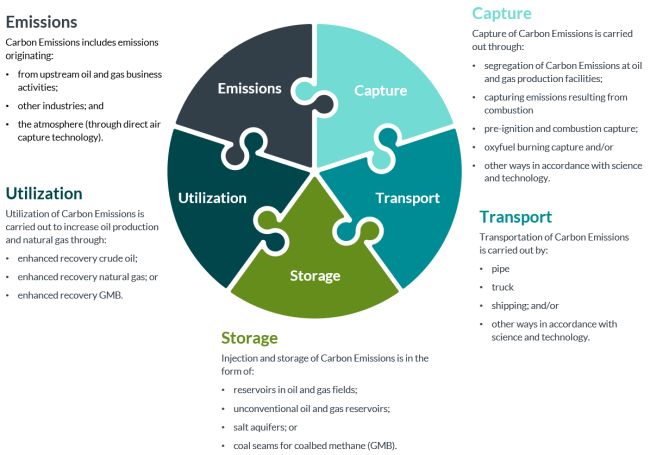INTRODUCTION
The Ministry of Energy and Mineral Resources (MEMR) of Indonesia has recently issued MEMR Regulation No. 2 of 2023 on the Organization of Carbon Capture and Storage (CCS) and Carbon Capture, Utilization and Storage (CCUS) for Upstream Oil-and-Gas Business Activities (MEMR 2/2023)1.
This regulation fits within the broader framework of recent regulations issued by the Government of Indonesia to lay the ground for the country's energy transition and the fulfilment of its international commitments under the Paris Agreement and other instruments. The new regulatory framework established by MEMR 2/2023 builds on existing regulations and principles applicable to the upstream oil & gas sector and also on similar regimes which have been developed over recent years in various countries which are looking to kickstart CCS and CCUS utilisation and projects as a means to mitigate CO2 emissions in hard-to-abate sectors.
In this article, we provide an overview of the coverage and key principles of MEMR 2/2023.

1. Scope and Purpose of the Regulation
MEMR 2/2023 covers the implementation of CCS and CCUS activities in the upstream oil & gas sector and within certain "Injection Target Zones" in the onshore or offshore environment (which can be depleted reservoirs, non-conventional reservoirs, saline aquifers or underground coalbed methane seams).
Generally, MEMR 2/2023 defines CCS as an effort to reduce greenhouse gas emissions by injecting and storing CO2 and other greenhouse gases (GHG) that can be converted as CO2 equivalent (Carbon Emissions) in certain upstream oil & gas work areas within Indonesia (Work Area).
CCUS is defined as an effort to reduce emissions and increase oil and gas production through the injection, utilization, and storage of Carbon Emissions in Work Areas (i.e. enhanced oil & gas recovery).
MEMR 2/2023 regulates the intended application of CCS and CCUS in Indonesia from the emissions themselves through to their capture, transport, storage and utilization, as summarised in the below infographic:2

Footnotes
1. MEMR 2/2023 has become effective on the date of enactment, i.e. 3 March 2023.
2. Articles 6-9.
Originally published 27 March 2023
The content of this article is intended to provide a general guide to the subject matter. Specialist advice should be sought about your specific circumstances.







